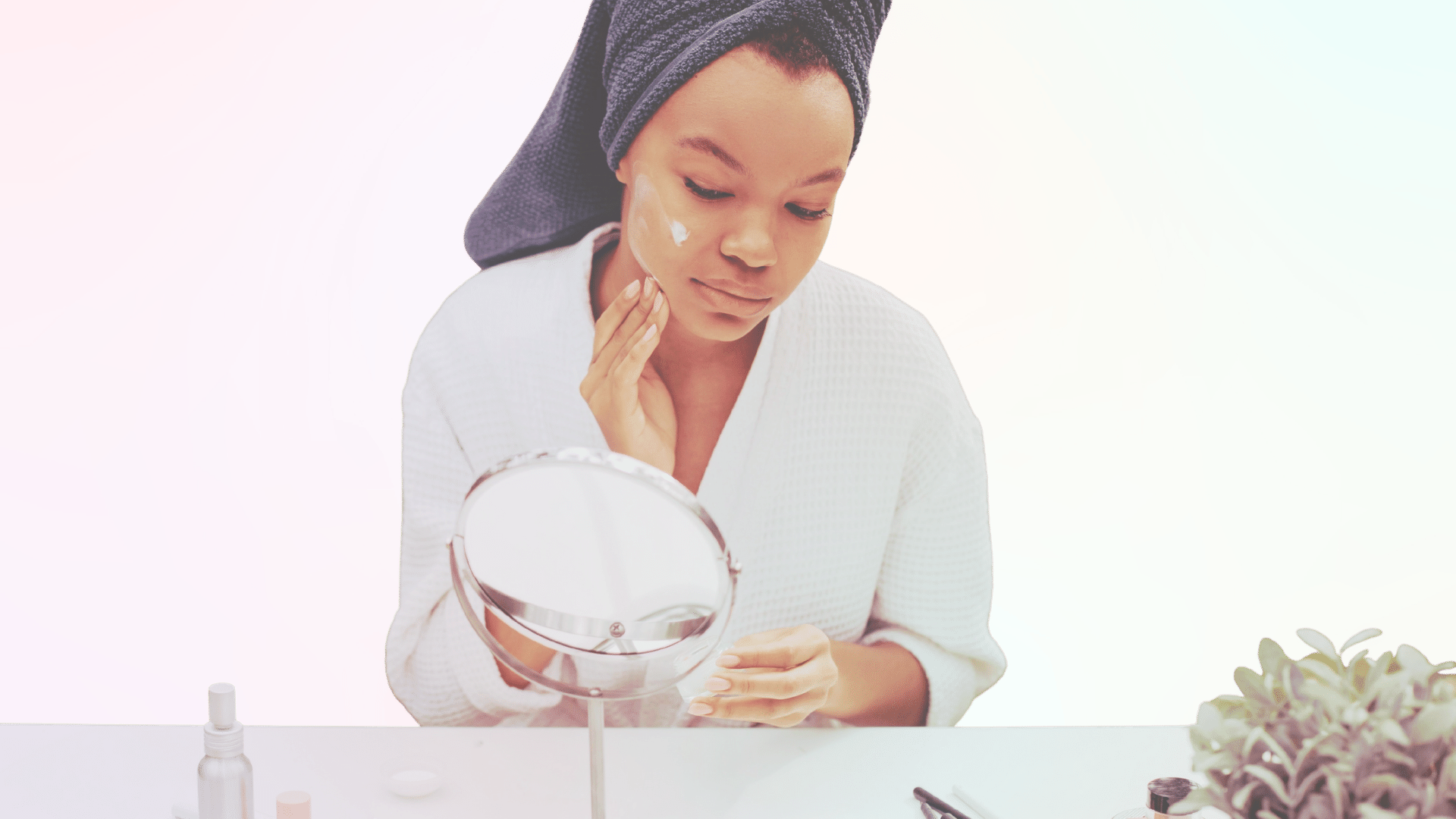 The world of skin care can be a confusing place. Maybe every few months, we are told about a new product or ingredient that will revolutionize the industry as we know it, not to mention change your skin for the better in a dramatic way. It can be difficult to sift through all the jargon, so you can attempt to understand what each cosmetic ingredient is supposed to be doing for your skin. Do you know what sodium lauryl sulfate is doing in your skin care? Did you know that benzoyl peroxide is in many camps considered to be a tumor promoter? Did you know that propylene glycol and butylene glycol, ingredients found in many eczema treatments, are both petroleum plastics?
The world of skin care can be a confusing place. Maybe every few months, we are told about a new product or ingredient that will revolutionize the industry as we know it, not to mention change your skin for the better in a dramatic way. It can be difficult to sift through all the jargon, so you can attempt to understand what each cosmetic ingredient is supposed to be doing for your skin. Do you know what sodium lauryl sulfate is doing in your skin care? Did you know that benzoyl peroxide is in many camps considered to be a tumor promoter? Did you know that propylene glycol and butylene glycol, ingredients found in many eczema treatments, are both petroleum plastics?
As such, they’ve been investigated by the EPA, which has found that the skin having contact with these cosmetic ingredients might be connected to kidney, brain, and liver abnormalities? Would you believe that the EPA recommends handling these materials with a glove, suggesting the material ought to be buried in order to be disposed of?
Those are the same ingredients you can find in many skincare products. And while we aren’t by any means the kind of skin care brand that wants to use scare tactics to promote our organic skincare products, we won’t hide from the truth, especially when the truth is directly connected to the health of our readers and prospective customers here at Aleavia Prebiotic Plant-Based Skincare.
Aleavia: Your Prebiotic Skincare Line Of Choice
Speaking of our prebiotic skin care brand at Aleavia, allow us a brief explanation of what we do and who we are, before we highlight individual skin care ingredients you should be avoiding.
The first thing we should explain is the nature of prebiotics itself. While most of us have heard about and understand “probiotics” to some degree, prebiotics is not simply a spelling error referring to the same thing. Put simply, when someone takes probiotics, they are adding good bacteria and other microbes to their system (typically the digestive system), while prebiotics refers to feeding the existing, beneficial microbes and bacteria. Your skin is your largest organ — that’s a fact that most people already know. But one that many do not yet know is that your skin plays host to a thriving ecosystem, filled with billions of microorganisms (such as yeasts, bacteria, viruses, and more). While the vast majority of these microbes are harmless, some can do damage to your skin and yet others are beneficial. Prebiotic skin care products work to feed the beneficial bacteria so that your skin rebalances itself in a natural way.
Essentially, our organic, prebiotic skin care brand at Aleavia has created products that help your body do more of what it is already doing well. Yet it’s often the case that we trust cosmetic care products that are filled with ingredients that have no business being applied to our skin on a daily basis, let alone come in contact with a human being in the first place!
We will say more about the organic ingredients found in our vegan skin care products later on in today’s post, we have a promised blog topic to get to, and a pretty important one at that. So if you are ready to learn about a few potentially harmful, all-too-often-seen ingredients found in common cosmetic skin care products, read on!
We all want to use skin care products that are both safe and effective. As we noted above, however, it’s not always easy to be able to decipher what certain ingredients mean or what they will actually do to your skin, so inevitably, many of us end up doing a bit of research before making a semi-informed selection from a traditional skin care brand.
The Good Ol’ FDA
The problem with this approach is that it gives far, far too much credit to the powers that be. Why? Simple: “The law does not require cosmetic products and ingredients, other than color additives, to have FDA approval before they go on the market, but there are laws and regulations that apply to cosmetics on the market in interstate commerce.” That information comes directly from the FDA itself, as a matter of fact. The FDA goes on to clarify: “FDA's legal authority over cosmetics is different from our authority over other products we regulate, such as drugs, biologics, and medical devices. Under the law, cosmetic products and ingredients do not need FDA premarket approval, with the exception of color additives.”
In sum, skin care brands are free to essentially “ask forgiveness, not permission,” as the old adage goes. And while we are proponents of applying that philosophy at a museum where you want to take pictures of famous works of art, the prospect of traditional skin care lines being able to put basically anything they want in a cosmetic product is alarming to say the least. This means that consumers need to be extra-careful when it comes to selecting what we apply on our bodies, because it sure seems like no one else cares enough to make sure there aren’t any number of hazardous ingredients in a skin care line.
 Skin Care Ingredients To Avoid
Skin Care Ingredients To Avoid
With our society’s important focus on avoiding GMO food, what’s lagging behind is our understanding that what we apply on our bodies is equally vital to our overall well-being. Below you’ll find a few examples of cosmetic products you should certainly think twice about before adding to your daily routine.
Parabens
Some of us have heard this buzzword used quite a bit lately, but there is substance here. Parabens are used as preservatives to make sure that bacteria, mold, and yeast do not flourish. Due to the fact that most everyone wants to avoid bacteria and other microbes like the plague, it’s no wonder that parabens can be found in a wide range of cosmetic products. These products have been researched and proven to disrupt the body’s endocrine system, which refers to the group of glands which operates as a chemical messenger system for the release of hormones. When our endocrine system gets hampered by parabens, it can lead to trouble with our reproductive, developmental, neurological, and immune systems.
On top of that, there have been studies performed which have concluded that endocrine interference might be the primary risk for prenatal and early postnatal development. For our readers out there who are pregnant or nursing, this is certainly something you should consider doing some self-guided research about. Some other names for parabens to look out for are isobutylparaben, propylparaben, methylparaben, butylparaben, or ethylparaben. They try to get you with their fancy, impossible-to-pronounce words, but now you are one step ahead of them!
For the record, all Aleavia skin care products are paraben-free, so maybe you could start and end your research right there!
Triclosan
You can probably find triclosan in your home right now. That is, if you use antibacterial hand soap. This antimicrobial chemical is also an endocrine disruptor, being particularly disruptive for the reproductive and thyroid hormonal systems. It’s also been studied for its skin-irritating properties, which isn’t ideal when it’s hand soap you will likely use numerous times per day.
On top of these serious concerns, there is the fundamental issue of making bacteria antibiotic-resistant worth considering, although that is a societal problem that extends far past the use of hand soap.
Unfortunately, triclosan is often found in deodorants and toothpastes alongside most antibacterial soaps.
Who Is Aleavia For?
Don’t worry, we are just getting started here. Keep both eyes peeled for part two of this two-part series in which we highlight some of the most common harmful ingredients in cosmetic and skin care products.
We hope you’ve found this post illuminating and helpful, because our intent is to inform our readers more than to scare you! We fully understand that learning about the awful ingredients many of us have been unknowingly applying on our bodies on a daily basis can be disconcerting. But there is hope. We at Aleavia Plant-Based Skin Care offer organic, natural, and vegan skin care products that use just seven organic ingredients. Whether you are looking for all-natural acne treatment or organic eczema treatment cream that is as safe as it is effective, you can shop with confidence when going with Aleavia. Our organic skin care products are:
- 100% natural and organic
- Non-toxic and GMO-free
- Chemical- and paraben-free
- Environmentally-friendly
- Free of all fragrances and dyes
- Safe for everyone in the family, even baby
- Vegan
- Always cruelty-free
In our next post, we will continue to highlight ingredients worth avoiding in addition to the seven organic ingredients used in our vegan skin care products. In the meantime, however, you can shop our Aleavia prebiotic skin care line today!



 Skin Care Ingredients To Avoid
Skin Care Ingredients To Avoid

